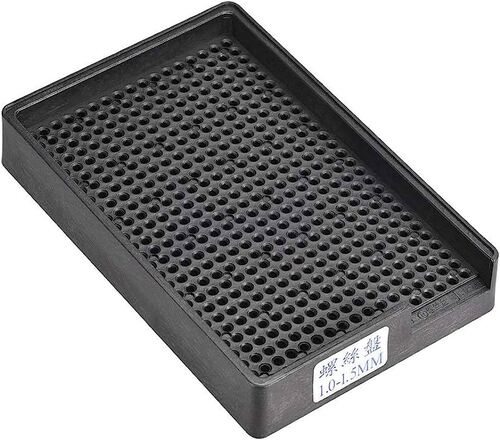Competitive Landscape: Analyzing the Assembly Tray Market Share

The global Assembly Tray Market Share is distributed across a diverse and fragmented competitive landscape. Unlike some industries dominated by a handful of giants, this market features a healthy mix of large, multinational packaging corporations and smaller, highly specialized regional fabricators. This structure is a response to the varied needs of manufacturing clients, from massive automotive OEMs requiring millions of trays to small medical device startups needing a few hundred highly specialized units. In a market that is steadily growing towards a projected value of USD 5.27 billion by 2035, driven by a 4.01% CAGR, the competition for market share is fought on multiple fronts, including innovation, cost, speed, and specialization, creating a dynamic and evolving environment.
Among the key players holding significant market share are large, diversified packaging and materials companies. Firms like DS Smith, Smurfit Kappa, UFP Technologies, Sonoco, and Tekni-Plex have the global reach, extensive R&D capabilities, and financial resources to serve major multinational clients. Their strategies often involve leveraging their broad expertise in materials science to offer a wide range of solutions, from thermoformed plastic trays to molded fiber and foam inserts. They compete by offering end-to-end services, from initial design consultation to large-scale production and global supply chain management. Their established reputation and ability to handle high-volume contracts allow them to secure a substantial portion of the market, particularly in the automotive and consumer electronics sectors.
At the same time, regional and local players play a vital role in the market and hold a collective significant share. These smaller, often family-owned, businesses thrive by focusing on specific niche markets or geographical areas. They can offer greater flexibility and faster turnaround times for custom projects, which is highly attractive to clients with urgent needs or smaller production runs. Many of these companies build deep expertise in a particular industry, such as aerospace or medical devices, allowing them to understand the unique challenges and regulatory requirements of that sector better than a large, generalized provider. Their ability to offer personalized service and competitive pricing on lower-volume jobs ensures they remain a crucial and vibrant part of the competitive landscape.
Several factors are key to gaining and maintaining market share in this industry. A company's design and engineering capabilities, including proficiency with CAD/CAM software and rapid prototyping, are paramount. Innovation in materials, especially in the areas of sustainability (like recycled and bio-based plastics) and high-performance polymers (like enhanced ESD or high-temperature materials), is a major differentiator. A strong geographical presence near major manufacturing hubs is also a significant advantage, as it reduces shipping costs and allows for more responsive service. Ultimately, the companies that can best combine design expertise, material innovation, and exceptional customer service will be the ones who successfully grow their market share in this expanding industry.
Explore Our Latest Trending Reports:
- Art
- Causes
- Crafts
- Dance
- Drinks
- Film
- Fitness
- Food
- Games
- Gardening
- Health
- Home
- Literature
- Music
- Networking
- Other
- Party
- Religion
- Shopping
- Sports
- Theater
- Wellness


